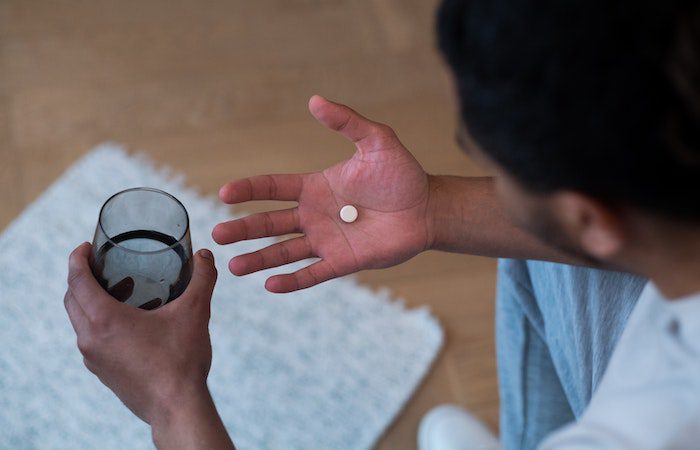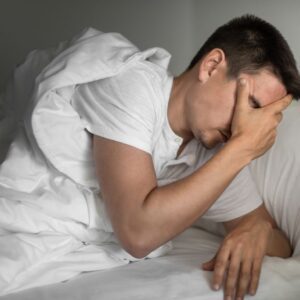
Benzodiazepines, commonly referred to simply as benzos, are a type of medication typically used to treat anxiety or insomnia. Although benzos have the potential to be addictive on their own, they are often used in medical detox to help people who are struggling with alcohol withdrawal symptoms. If you’ve been diagnosed with an alcohol use disorder, benzos may be able to help you get sober.
An Introduction to Benzos
Benzodiazepines are a class of drugs that act as central nervous system depressants. Benzos work by binding to GABA receptors in the brain. GABA is a neurotransmitter that helps to regulate nerve activity. When benzodiazepines bind to GABA receptors, they increase the activity of GABA, which has a calming effect on the nervous system.
Benzodiazepines are some of the most commonly prescribed drugs in the world. Some of the most well-known benzos include:
- Alprazolam. Best known by the Xanax brand name, this medication is used to treat anxiety and panic disorders.
- Clonazepam. Best known by the Klonopin brand name, this medication is used to treat anxiety and seizure disorders.
- Diazepam. Best known by the Valium brand name, this medication is used to treat anxiety, muscle spasms, and seizures.
- Lorazepam. Best known by the Ativan brand name, this medication is to treat anxiety and seizure disorders.
Using Benzos to Treat Alcoholism
The first stage of addiction treatment for an alcohol use disorder is detox. This is when the body gets rid of all of the alcohol in your system. Detox can be a difficult and uncomfortable process, and it’s often accompanied by withdrawal symptoms like:
- Anxiety. People who are going through withdrawal may report feeling restless, tense, or on edge.
- Insomnia. It is common for people in the initial stages of withdrawal to report having trouble sleeping.
- Fatigue. Feeling tired or exhausted is often part of the withdrawal process, especially when a person is struggling with insomnia.
- Irritability and mood swings. Some people who are going through withdrawal report feeling easily annoyed or angered and having sudden changes in mood that are difficult to manage.
- Depression. Feeling down or hopeless is a well-known side effect of alcohol withdrawal.
- Cravings for alcohol. A strong desire or urge to drink is common during detox and can be a risk factor for relapse if not managed appropriately.
Withdrawal symptoms can range from mild to severe, and they can last for days or weeks. Benzodiazepines can be used to help manage a person’s withdrawal symptoms and make detox more comfortable. Because they work by slowing down the central nervous system, they can help to reduce anxiety and agitation. As sedatives, they can also be helpful when a person is struggling with insomnia.
Beyond dealing with the standard withdrawal symptoms, benzos can prevent the seizures and hallucinations that sometimes occur during alcohol withdrawal when a person experiences what is known as delirium tremens (DTs). Also called alcohol withdrawal delirium, DTs affects between 5% and 10% of people who suffer from chronic alcohol use disorders.
Potential Safety Concerns
As with any other prescription medication, the use of benzodiazepines does come with some risks. Because they are central nervous system depressants, benzos can cause drowsiness and impaired motor skills. This can increase the risk of falls and other accidents, but patients who are using benzos as part of a medically managed detox are monitored 24/7 for their safety and comfort.
Additionally, benzos can be addictive. There will always be the potential for abuse, but this risk is lowered when they are used in moderation and under the care of an experienced medical professional. You must also consider that allowing an alcohol use disorder to remain untreated carries an even greater risk to your well-being.
What Other Treatments May Be Recommended?
While benzos can be helpful in the short term, they are not a cure for alcoholism. They should be thought of as just one part of a larger effort to help you build the foundation for a lasting recovery. Other treatments that may be recommended by the team at Waypoint Recovery’s South Carolina addiction treatment center include:
- Counseling. Individual, group, and family therapy can help you to identify the underlying causes of your alcoholism and develop strategies for dealing with triggers and cravings.
- Treatment for co-occurring mental health disorders. If you also struggle with depression, anxiety, PTSD, or another mental health disorder that can trigger the urge to self-medicate with alcohol, this needs to be addressed as part of your recovery plan.
- 12-Step programs. Participation in 12-Step programs such as Alcoholics Anonymous (AA) can provide support and accountability as you recover from alcoholism, especially when you have a sponsor to rely on as you face the challenges that come with transitioning to independent living.
- Continuing care. After you graduate from residential treatment, you’ll have access to a wide range of continuing care resources. This includes alumni events, the CaredFor app, and recovery management services that work on relapse prevention skills.
Although it can take some time to develop a treatment plan that is personalized to fit your unique needs, there is always hope for a lasting recovery. Contact us today to learn more about how we can help you take the first steps toward a brighter future.





